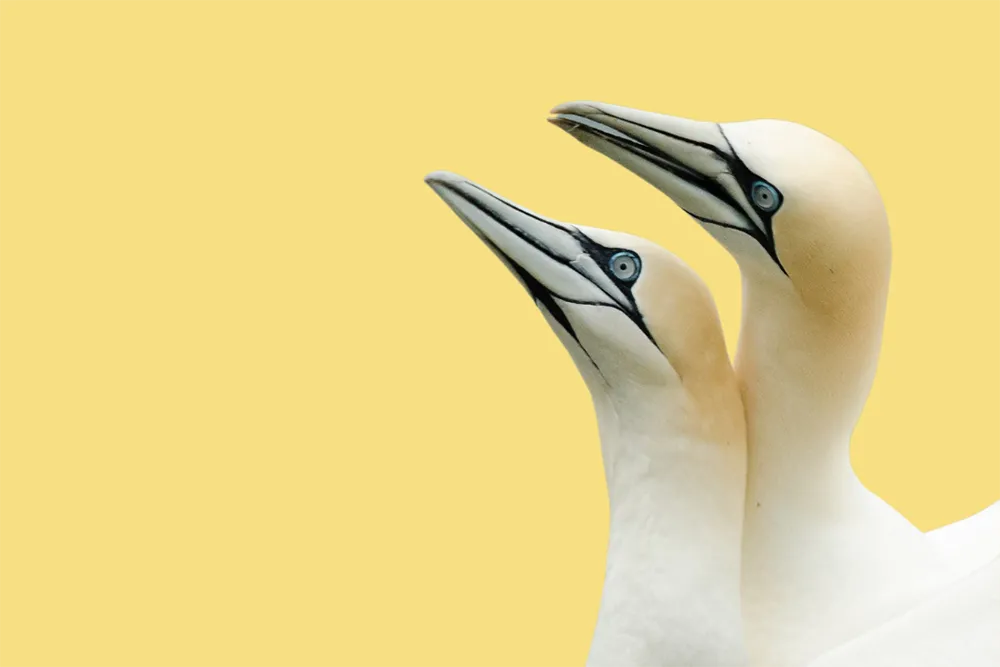Avian influenza (bird flu, avian flu) — the disease, its impacts and our work.
At BTO, we are dedicated to tackling the challenge of avian influenza. Here you’ll find more information on the virus and disease it causes, its impact on our wild bird populations and the work we are doing to mitigate its impacts. We've also included some important health and safety guidance too.
Our work on HPAI
As the custodian and coordinator of national datasets about the UK’s wild bird populations, we are uniquely placed to provide insights and commentary on avian influenza.
Outbreaks and impacts
The outbreak beginning in 2021 is still circulating in wild bird populations and has had huge impacts on both breeding and wintering species.
How you can help
Help us tackle the challenge and support vulnerable bird populations by volunteering for a survey, reporting ringed, dead, or sick birds, and donating to our avian influenza appeal.
What is avian influenza?
Avian influenza is a disease of wild and captive birds which is caused by an avian influenza virus. The disease is also known as AI, avian flu or bird flu. It is a different disease to avian pox.
Avian influenza viruses are similar to the viruses which cause flu in humans, but they are adapted to birds. Scientists categorise the strains of avian influenza into two types, based on their potential to cause disease (known as 'pathogenicity'): high pathogenicity AI (HPAI) and low pathogenicity AI (LPAI). The most well-known HPAI strain is H5N1. This is the strain that is behind the current outbreaks in UK poultry and wild birds.
Key symptoms of HPAI in birds
- The main clinical signs of HPAI in birds are a swollen head; blue discolouration of the neck and throat; loss of appetite; respiratory distress such as gaping beak, coughing, sneezing, gurgling, rattling; diarrhoea; fewer eggs laid; increased mortality; neurological signs such as trembling, falling over, swimming or walking in circles.
- Clinical signs can vary between species of bird and some species, e.g. ducks and geese, may show minimal clinical signs.
Health and safety
The risk of avian influenza transmission to the UK human population is very low, but the expert advice is to avoid handling sick or dead birds with bare skin if you come across them.
- For more information, please read our guidance about the health and safety risks associated with avian flu.
Reporting avian flu
Avian influenza is a ‘notifiable disease’. For the latest information, please see our guidance on reporting avian influenza.
News and reports on avian influenza
In June 2025 we brought together a suite of scientific studies across two issues of our scientific journal Bird Study. These document the spread and impact of the disease on wild birds, and assess the effectiveness of management responses. By doing this, we hope that lessons learned from the recent outbreak will ensure that we are better prepared for future outbreaks of this, and other, diseases.
BTO’s Director of Science James Pearce-Higgins spoke at the Parliamentary Science, Innovation and Technology Committee about avian influenza on 21 June 2023:
and to the Environmental, Food and Rural Affairs Committee on avian influenza on 29th November 2022
Report on AI workshop organised by BTO and JNCC:
Reporting avian flu
Birdwatchers can be of great assistance in staying alert for unusual cases of mortality or sickness in wild birds. Many thousands of birds die every week of natural causes and so it is not unusual to occasionally find dead individuals.
Report dead birds
In England, Scotland and Wales:
- Report dead wild birds to Defra.
- If you know the species, ALSO report the dead bird to BirdTrack.
In Northern Ireland:
- Report dead wild birds to DAERA.
- If you know the species, ALSO report the dead bird to BirdTrack.
Read more information and advice about dead birds in England, Scotland and Wales, and in Northern Ireland.
Where possible, avoid directly touching any dead birds with bare skin. If you move a dead bird e.g. if a cat brings one into your house or you need to check if it is ringed, invert a plastic bag over your hand and pick the bird up in the plastic.
If the bird is ringed, report the ring details to BTO using the EURING website, then draw the bag over your hand and tie it up and dispose of it in your usual household waste, and wash your hands with soap and water.
Some key sites have been selected to collect more detailed information on wild bird mortality via the Epicollect systems. These Epicollect sites are contacted by the relevant SNCBs (Natural England, Natural Resources Wales, NatureScot, NIEA) with details.
Help us research the impacts of this deadly outbreak
We launched our Avian Influenza Appeal in November 2022, but donations remain as vital for our work on HPAI now as they were then.

Further information about avian influenza
Resources from BTO and our partners:
- The EURING migration mapping tool uses recoveries of birds marked with individually identifiable rings to map migration routes in both space and time for wild birds moving to and from Britain and Ireland.
Resources from external organisations:
- Information about the species affected and the locations of outbreaks are publicly available via the Government’s weekly APHA Avian Influenza reports and summarised in regular HPAI Outbreak Assessments.
- National government guidance, including actions for poultry keepers, is available for England, Scotland, Wales and Northern Ireland.
- Information about HPAI in Europe is reported by the European Food Standards Agency.
- Information about HPAI globally is reported by the World Organisation for Animal Health.